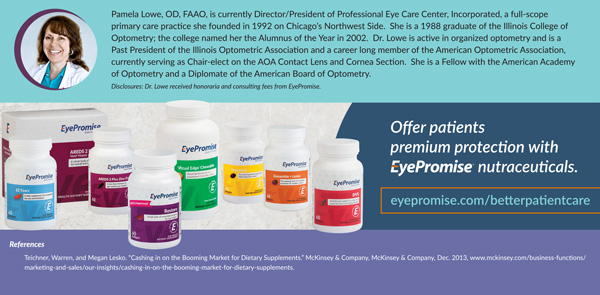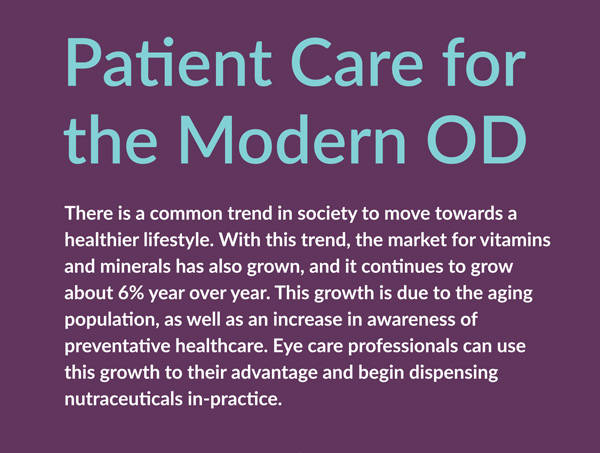

Why Supplement?
While there is a trend towards living a healthier life, most Americans are woefully lacking in the nutrition their eyes desperately crave. Specifically, the typical diet lacks two important carotenoids: zeaxanthin and lutein. Nutritional counseling and dietary modification can help, but it’s difficult to get the amounts of these two antioxidants from food alone. It’s often easier for patients to take a daily nutraceutical to bridge the dietary gap.


Beyond nutritional support, eye health nutraceuticals can protect against eye health concerns like age-related macular degeneration (AMD), diabetic retinopathy, and dry eye. Patients tend to find supplementation easier than making a dramatic lifestyle and dietary change, and it ensures they are actually receiving all the nutrients their eyes need in the amounts that will make a true impact.
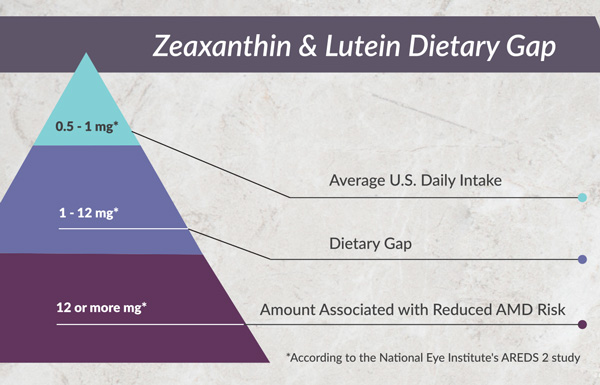

Who Needs Supplements?
To be frank, MOST people could benefit from starting a nutraceutical regimen because the standard American diet doesn’t support eye health in the way it needs to. Those with other risk factors for diseases like AMD and diabetic retinopathy should be supplementing with a nutraceutical to help protect their vision. Risk factors include:
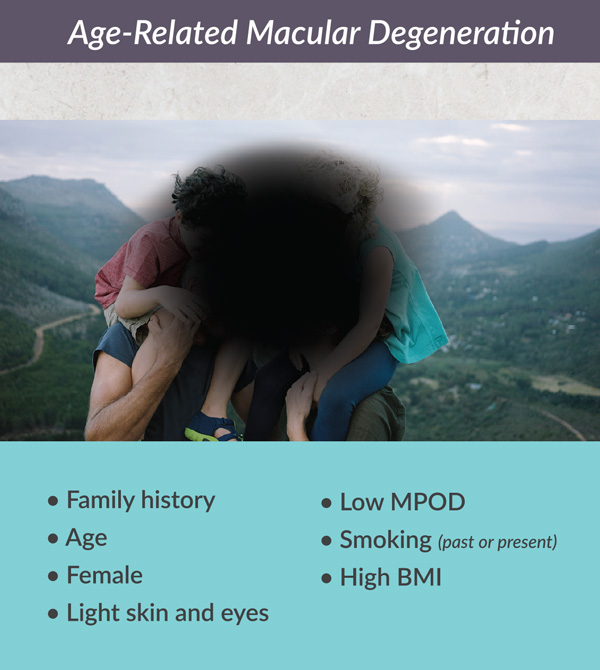

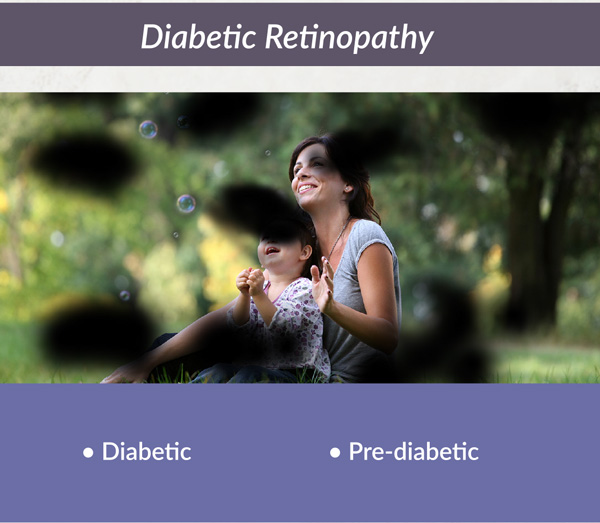

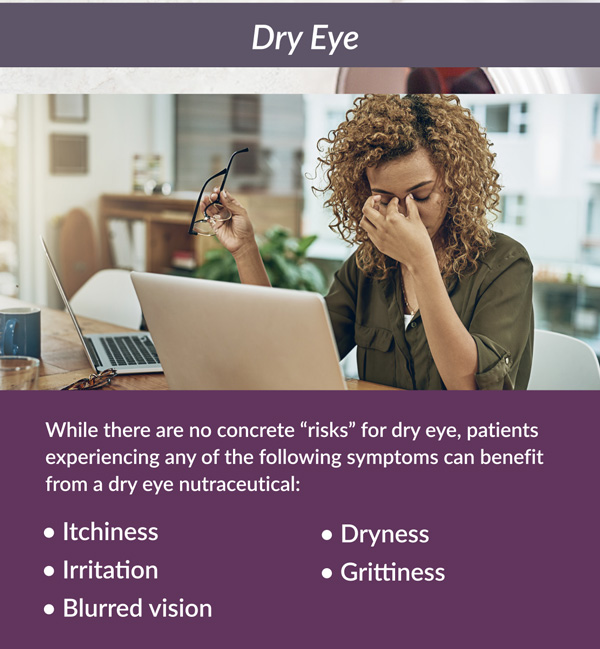

How Do You Know They’re Working?
When patients are on a dry eye nutraceutical, they can usually feel if it’s taking effect or not. Some can even feel relief within the first week of supplementation, depending on the product. Macular health nutraceuticals are more difficult to prove their effectiveness. In my practice, I measure macular pigment optical density (MPOD) with the QuantifEye® MPS II. The macular pigment is made up of zeaxanthin and lutein, and without nutritional support, it can become less effective, resulting in a lower MPOD score. Patients consistently supplementing with these two carotenoids will be able to see a noticeable improvement in their MPOD scores.
I consider supplementation to be a best practice among eye care professionals because it’s important for both eye and overall health. With MPOD measurement, I’m able to track my macular patients’ progress, and they get a simple score to associate with their eye health, making adoption of the nutraceuticals easier. It’s important to choose a lineup that is supported by sound science and guaranteed to make an impact. I recommend researching what products you’d like to offer your patients. One great way to become more knowledgeable and stay current with the latest science is to become a member of the Ocular Wellness Nutrition Society; for more information visit www.ocularnutritionsociety.org.
